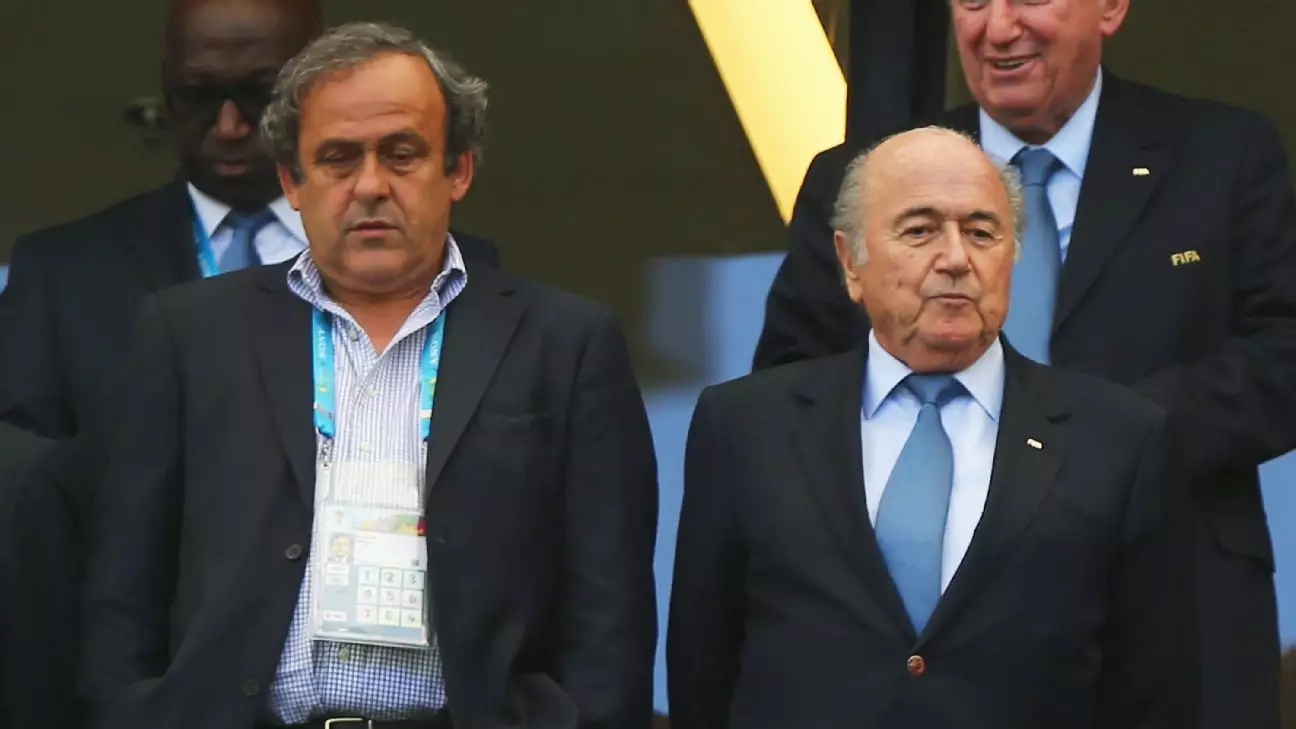In the high-stakes world of football, few stories resonate as deeply as the tumultuous saga of Sepp Blatter and Michel Platini. Once lauded as titans of the footballing community, the duo’s decline from grace reveals the intricate web of ambition, power plays, and perceived betrayal that dominates the sport. As they prepare to face the Swiss court, the question looms: Will they emerge as vindicated figures, or will history deem them corrupt?
Sepp Blatter, who presided over FIFA for an astounding 17 years, and Michel Platini, a revered football player and executive, were once key stakeholders in shaping the future of international football. Their legacy, however, has become mired in scandal following a controversial payment of 2 million Swiss francs, described by both as a legitimate consultancy fee. Blatter’s authorization of this transaction in 2011 not only set the stage for their downfall but also led to Platini’s disqualification from competing for the FIFA presidency—an opportunity he was primed to seize.
The Shadows of Corruption
As the Extraordinary Appeals Chamber of the Swiss Criminal Court convenes, the stakes are high. Over two years ago, Blatter and Platini were acquitted of fraud in a lower court; however, federal prosecutors have decided to challenge that verdict, insisting that the pair’s actions represent a calculated deception against FIFA. They argue that Blatter and Platini manipulated FIFA staff into believing that a legitimate obligation existed for the payment, which, on the surface, appears to be an egregious breach of ethical standards.
Critics of the prosecution’s stance may point to a lack of substantial evidence to paint the payment as a fraudulent scheme. Judge evaluations of the prominent “gentlemen’s agreement” between the two men raised questions about the validity of the accusations, suggesting that the case against them is built more on speculation than concrete proof. This dramatic legal back-and-forth highlights the often murky intersections of sport and law, where loyalties are tested and reputations hang by a thread.
In the Eye of the Witch-Hunt
Both Blatter and Platini have maintained their innocence throughout the legal tribulations, framing their circumstances as a targeted campaign to eliminate them from football leadership. At 89, Blatter has publicly referred to himself as a victim of a “witch-hunt,” citing a personal vendetta aimed at undermining his legacy. He asserts that the payment to Platini was not only valid but a necessary acknowledgment of past contributions to FIFA.
Platini shares his former colleague’s sentiment, asserting that the two-million payment represents backpay for advisory work performed between 1998 and 2002. His ardent declarations of innocence, alongside his legal counsel’s assertions that the prosecution’s motives are rooted in a desire to prevent his presidency, illuminate the often-ruthless landscape of football governance. As the world watches closely, it becomes clear that the revival of Platini’s ambitions and the erasure of Blatter’s stigma may hinge on the outcome of this case.
The Machinations of Power
In the backdrop of this unfolding saga, new faces have emerged in the corridors of power within FIFA, particularly Gianni Infantino, Blatter’s successor and a former UEFA ally of Platini. Infantino’s presidency can be seen through an ironic lens—one that paints the duo’s legal challenges as strategic maneuvers that cleared the path for his ascendance. Although he publicly distances himself from the previous administration’s scandals, connections between the current leadership and the events that transpired during Blatter and Platini’s reign remain unsettlingly close.
Infantino’s assertion that he only ascended to the presidency out of necessity, following Platini’s downfall, begs deeper questions about the ethics and integrity of football governance. Was the criminal prosecution of two giants more about suppressing potential rivalry than upholding justice? The intersection of ambition, governance, and moral accountability in this case serves as a sobering reminder of the battles that lurk beneath the glimmering surface of the sport.
While awaiting the court’s decision, the saga of Blatter and Platini stands as a profound reflection on loyalty, betrayal, and ambition. As their legacies hang in the balance, so too do the integrity and future of football itself. The outcome will undoubtedly resonate beyond the courtrooms, shaping perceptions and histories surrounding these once-celebrated icons of the sport.

